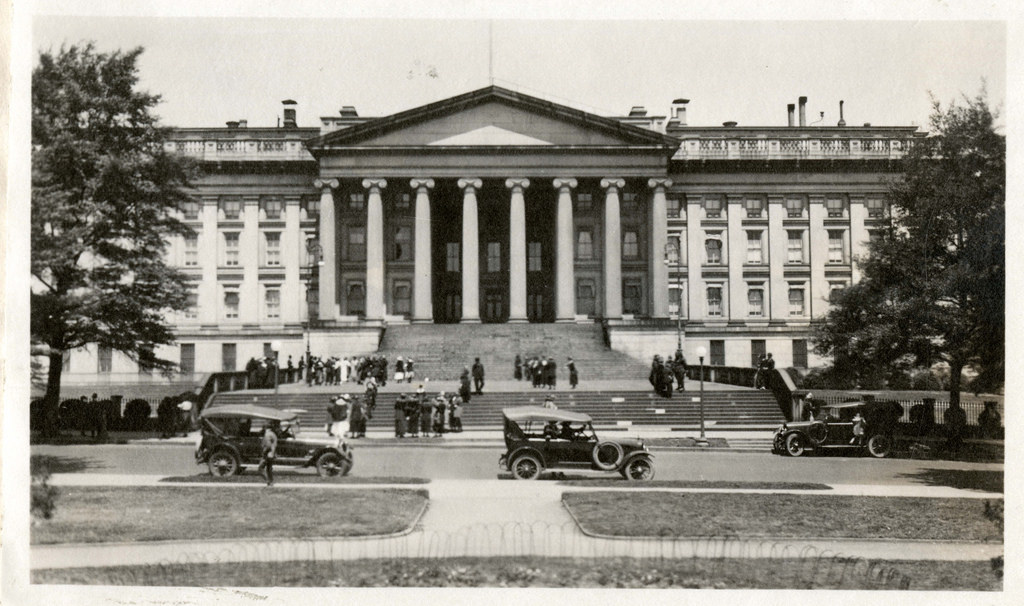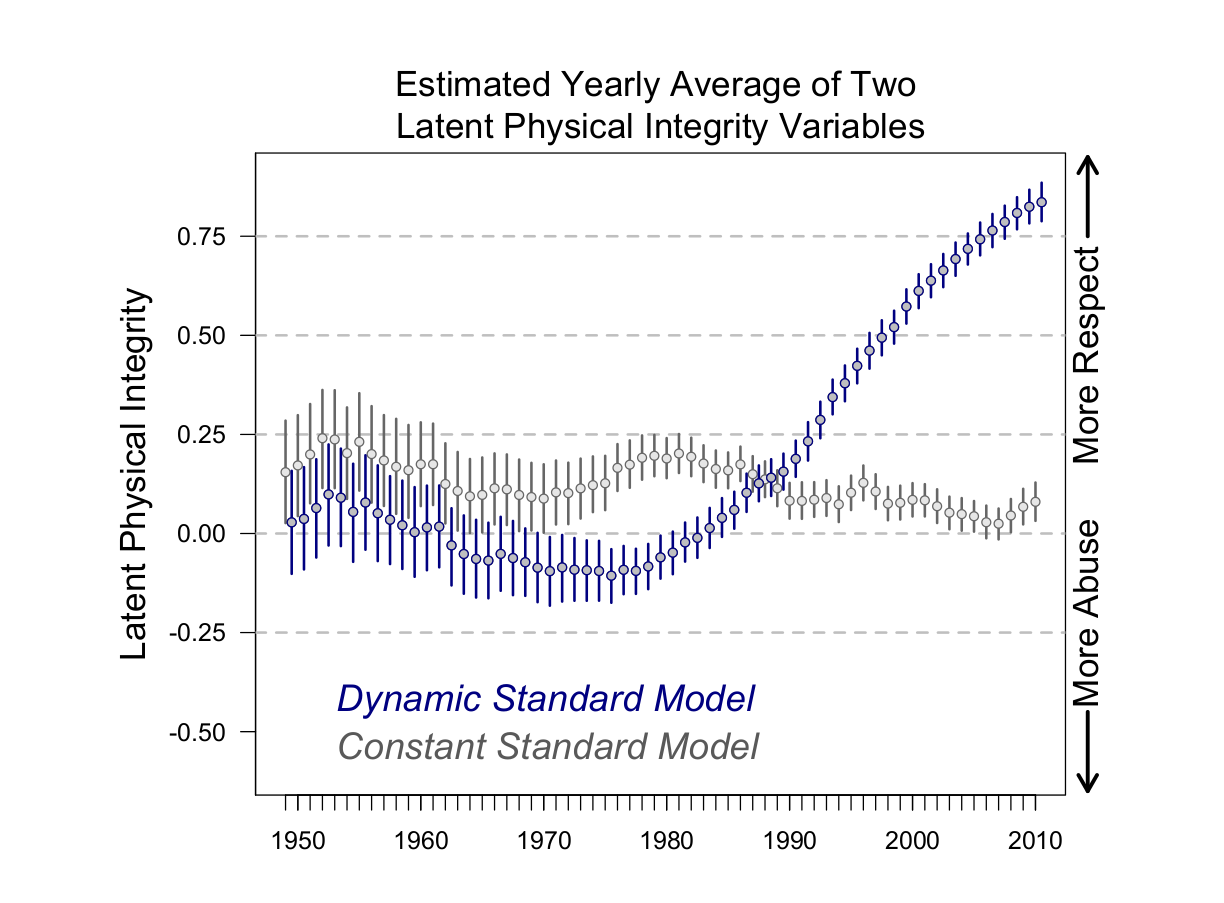Guest post by Maciej Bartkowski.
“I thought I was the president, but when it comes to these bureaucrats, I can’t do a damn thing.” – President Harry Truman
Since Donald Trump’s assumption of the office of President on January 20, 2017, there has been an unprecedented waive of publications and reporting (here, here, here, here or here) describing real and potential resistance actions by the US federal bureaucracy against the newly-elected president and his policy agenda.
Many would correctly say that nonviolent resistance is an inherently better option than violent actions in fighting for what one believes. At the same time, the nature of nonviolent resistance is, in itself, neither good nor bad – it is the ends that the nonviolent resistance serves and the consequences it generates which matter. The ends and results of nonviolent resistance are especially important amidst current calls for bureaucrats to dissent against the current administration.
Among the general public, bureaucracy is rarely associated with a positive force for change. A popular British comedy serial from the 1980s, “Yes Minister”, and its sequel “Yes, Prime Minister”, portrayed civil servants as cold, unscrupulous, manipulative, and mischievous. In sum, they were arrogantly smart schemers that effectively thwarted the will of elected politicians. In addition to this unbecoming view of bureaucrats, more recent concerns have emerged that bureaucratic dissent may be a harbinger of an undemocratic and corrupt deep state in which elected institutions and officials are systematically undermined by self-interested bureaucrats. This, in turn, could pave the way for a strongman politician to rein in an unwieldy and unaccountable bureaucracy, resulting in greater centralization and concentration of power in the executive and, eventually, the emergence of an authoritarian state.
The potential for nonviolent resistance by bureaucrats to go astray – and result in even greater troubles for democracy than the current situation – begs the question: under what circumstances is it possible to call for and encourage US federal civil servants to defy a democratically elected US president and engage in nonviolent resistance against a policy agenda with which they disagree?
In such circumstances, articulating specific principles of ethical resistance can offer useful guidelines for federal bureaucrats, including reference points for those actions to be seen as legitimate and appropriate dissent. More precisely, such principles will help define ends of resistance as being informed by public good, ensure and augment the positive impact of such resistance on democratic practices, and mitigate potential negative consequences.
A number of existing documents offer helpful insights on the code of conduct of federal civil servants, including – but not limited to – the following: Standards of Ethical Conduct for Employees of the Executive Branch, the American Society for Public Administration (ASPA) Code of Ethics for public servants, and Dwight Waldo’s ethical obligations for civil servants. These guides, in addition to a forthcoming International Center on Nonviolent Conflict manuscript by Elizabeth Wilson on human rights ethos of civil resistance, provide a wealth of relevant material to inform and develop a simple code of conduct on ethical dissent in public administration. A review of these texts illuminates at least eleven principles which can offer grounds and guidance for career civil servants to engage in civil defiance of elected officials and their policy agendas.
Principles of Ethical Resistance by Civil Servants:
- Uphold constitution, rule of law, and democratic standards
- Defend public interest no matter institutional or personal loyalties
- Reject threat or use of violence
- Reject suppression and repression of peoples’ autonomy and political rights
- Promote general welfare based on justice, fairness, equal treatment, and respect for differences of all citizens
- Protect survival and well-being of future generations while taking into account a long-term interest of the society
- Resist pressure to compromise professional integrity and fight for honesty and truthfulness based on facts and evidence
- Encourage and organize dissent in and outside of the organization if this is the only remaining way to defend ethical and lawful conduct
- Assess potential consequences of resistance actions against costs and risks of remaining inactive, compliant, or silent
- Reach out to and partner with activated citizens to harness their engagement in developing, implementing, or defeating specific or general government policies depending on whether or not these policies advance public interest
- Assist political superiors to the extent this assistance promotes the above-mentioned principles
The listed principles can provide a legitimacy benchmark for assessing the need for – and rightfulness of – nonviolent resistance undertaken by bureaucrats against democratically elected political leaders. At the same time, it is a personal decision of each and every civil servant whether or not to engage in dissent and, if so, what form such dissent would take. The identified principles for ethical dissent set the stage for career bureaucrats not to act or be seen merely as technocratic administrators, but as mobilized citizens that are empowered to wage a legitimate and pro-public struggle within their institutional setting if the situation warrants it.
Even though public trust in government is at its historical low (below 30%), federal agencies have enjoyed – what might come as a surprise given the negativity that surrounds central bureaucracy – relatively higher public confidence (above 60% on average over the last decade) than elected federal bodies such as the US Congress (just above 20%). Even the least liked federal agency, Treasury (the department in charge of IRS and tax collection), won the trust of 59% of US citizens in 2016.
Such public trust can be used and further harnessed by those bureaucrats seeking to stand up against harmful and/or discriminatory public policies put forth by elected officials. Towards this end, however, it is important that civil servants maintain an objective set of principles which will define and guide their rightful, peaceful resistance.
Maciej Bartkowski is Senior Director for Education and Research at the International Center on Nonviolent Conflict. You can follow him on Twitter @macbartkow.








1 comment
this is very helpful. 1) I would add “international law” in addition to constitution. (also UK does not have a constitution)
2)There is always a principal of parochial versus global benefit. Other than UN civil servants, all are parochial in some fashion. When are you a human being first, end when do you put your national or local interests first.
3) principals 8 10 and 11 are really principles of “how”. The other principals are “whether”. I would not mix them up.
4)I think subservience to political authority is an important principle that may be overwhelmed by other more pressing principals…but should be mentioned.